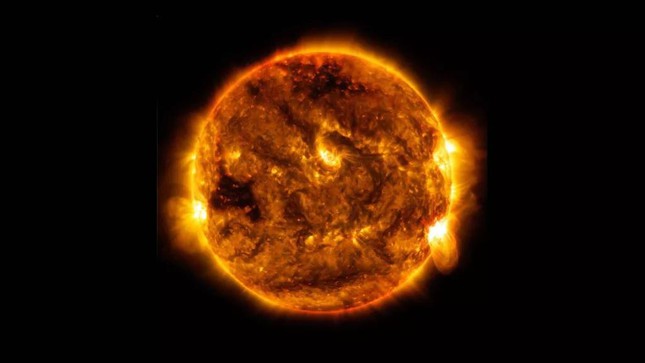Solar storms pass the earth, what should be wary of?-Information Technology
TPO – A weak solar storm could pass through Earth on May 7, potentially leading to minor radio blackouts, the US National Oceanic and Atmospheric Administration (NOAA) forecast.

Image of a ray of sunlight taken by NASA
Continuing a series of months-long high-altitude activities, the sun is now bursting with intense solar flares, often accompanied by giant explosions of plasma known as coronal mass ejections (CMEs). .
As CMEs pass through Earth, they can temporarily compress our planet’s magnetic shield, leading to geomagnetic storms that can knock down power grids, disturb radio waves, and damage satellites on the planet. their path.
According to NOAA, most geomagnetic storms are mild. But the largest CMEs can cause much more devastating storms — such as the infamous Carrington Event of 1859, which caused electric currents so strong that telegraph equipment burst into flames, according to NASA.
Some scientists have warned that another solar storm of that magnitude could hit Earth in an “internet apocalypse,” taking countries offline for weeks or months.
NOAA said in its latest report, there is a small chance that a small CME could graze Earth’s magnetosphere, resulting in a G1-class geomagnetic storm – the weakest storm on NOAA’s five-level scale.
When Hurricane G1 hits, weak grid oscillations and auroras – phenomena caused by charged particles in the solar wind colliding with molecules in Earth’s atmosphere – can be seen in lower latitudes than usual. CMEs typically take 15 to 18 hours to reach Earth after they leave the sun.
The Sun has been emitting CMEs at a faster-than-normal rate for several months now – including a giant “cannibal CME” (two CMEs combined into one) that smashed into Earth in late March.
This type of solar activity is typical as the sun approaches a cycle known as the solar maximum – the most active point in the sun’s 11-year cycle.
NOAA predicts the next solar maximum will occur sometime between November 2024 and March 2026.
at Blogtuan.info – Source: 24h.com.vn – Read the original article here



